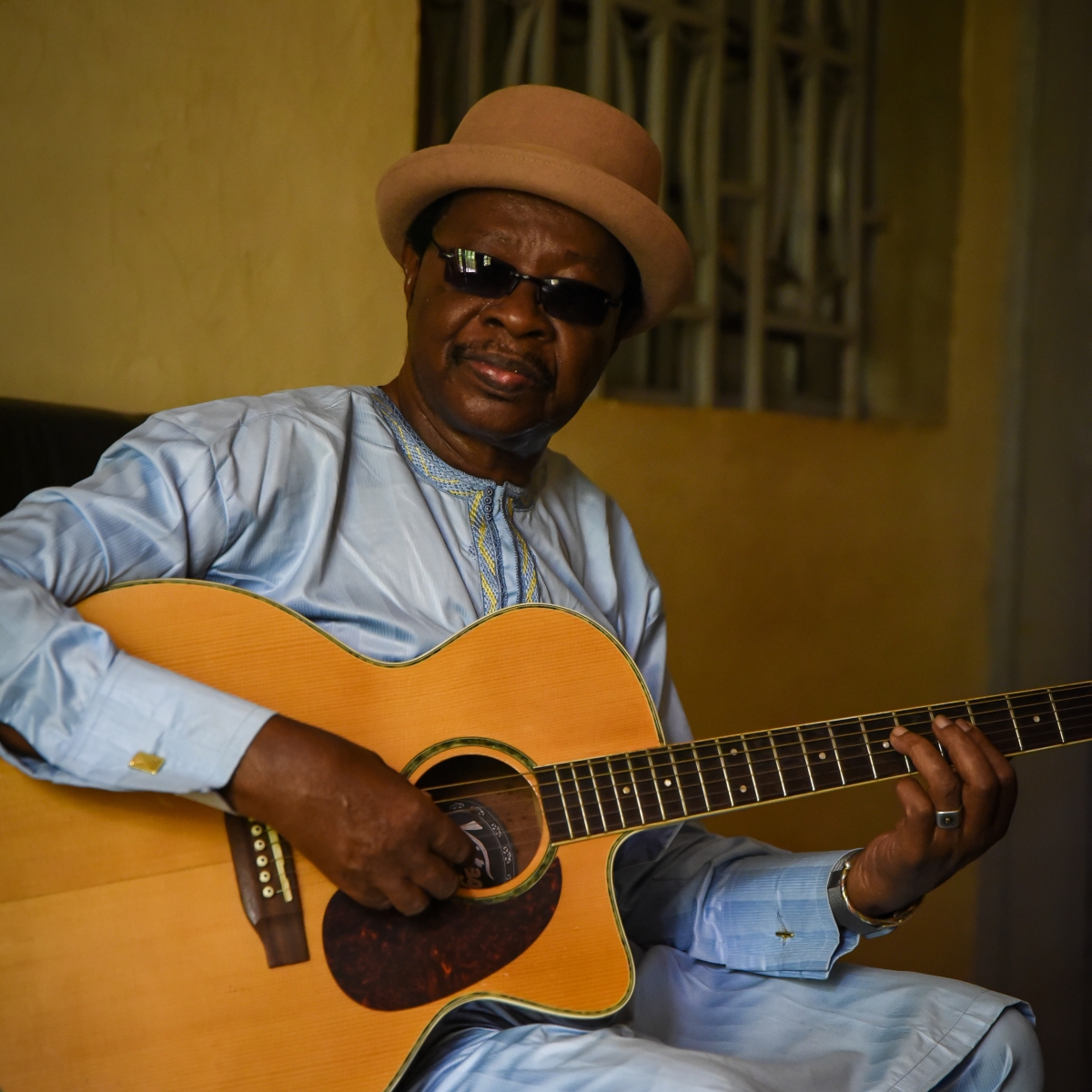Idrissa Soumaoro was born in 1949 in Ouéléssébougou, a small town 75 km south of Bamako in Mali. During his school holidays in Bamako, the young rural boy discovered and was charmed by instruments such as the harmonica, the flute and the timbo. Back in the village after his holidays, he borrowed his brother-in-law's guitar and tuned it to the sound of the n'goni. Between the ages of fifteen and sixteen, Idrissa formed his first group, Djitoumou-Jazz de Ouéléssédougou.
In 1968 he entered the Institut National des Arts in Bamako and during his studies he recorded songs for ORTM Télévision nationale. It was during this period that he wrote his song 'Ancien combattant', which was later covered by the Congolese artist Zao. After graduating from the National Arts Institute in Bamako, he became a teacher in Diré, then in Bamako. A teacher by day and an artist by night, Idrissa continued to perform on various music stages, eventually joining the Ambassadeurs du Motel alongside Salif Keïta and Kanté Manfila, and befriending the blind Amadou Bakayoko. In the early 1980s, he set up an orchestra called ‘Eclipse’ because the group was made up of sighted and blind people (like light and darkness, like the duality that makes up the world). In 1983-84, the sighted members left the group and it took the name ‘Miriya’ (thought in Bambara): the place was left exclusively to blind musicians and singers led by Amadou and Mariam as lead singer. In 1984, thanks to this initiative, he was awarded a scholarship to study Braille musicography at Birmingham University.
In 2003, after 34 years in the music world, he released 'Koté', a 14-track album produced by Syllart Productions, Idrissa's first real commercially released work. In 2010, he released another album, 'Djitoumou', featuring the track 'Bèrèbèrè' with Ali Farka Touré, a song that became famous as part of the soundtrack to the film Black Panther.
‘Diré’, his third album, comes as a surprise to Malian and international audiences, who will not be disappointed by the quality of the work. Today more than ever, his lyrics, which dream of a fair world and a society based on solidarity, and which use humor to paint a picture of society, need to resonate throughout the world.

